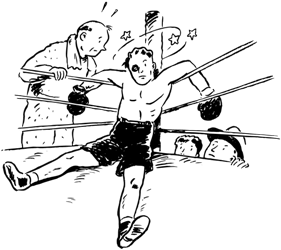Future Progressive Tense
(futuro progresivo)
El Future Progressive (futuro progresivo) es un tiempo verbal muy común en inglés. Deberías entenderlo y poder usarlo correctamente.
Click Here for Step-by-Step Rules, Stories and Exercises to Practice All English Tenses
¿Qué sigue?
¿Cómo utilizamos este tiempo verbal?
El Future Progressive (Futuro Progresivo) es una forma del verbo que muestra que la acción estará en progreso en un momento dado, o en algún período dado, en el futuro.Por ejemplo:
- Tomorrow at 8 o'clock James will be cleaning the
house.
(Mañana a las 8 horas James estará limpiando la casa.)
- James will
be cleaning the house all morning.
(James estará limpiando la casa toda la mañana.)
El Future Progressive (futuro progresivo) se usa frecuentemente junto con el Simple Present (presento simple).
Por ejemplo:
- James will
be cleaning the house when I arrive.
(James estará limpiando cuando yo llegue.)
Estos son
algunos de los diferentes usos que tiene este tiempo verbal:
Asegúrate de leer también:
Ejemplos de expresiones de tiempo típicosAcciones
que estarán en progreso
en un momento o un período dado
en el futuro
(Los verbos están en negrita)
She will be singing
all night.
(Estará cantando toda la noche.)

We will be doing
business next year.
(Estaremos haciendo negocios el año que viene.)

He will
be driving for a while.
(Estará manejando por un rato.)

(Dentro de una hora estará acostado en un hospital.)

At ten o'clock tonight she will be meeting
her
boyfriend.
(Hoy a las 10 horas estará viendo a su novio.)

He will
be shouting until he gets tired.
(Estará gritando hasta que se canse.)

When he comes, she will be
waiting.
(Cuando él llegue, ella estará esperando.)

She will
be walking confidently when she returns.
(Estará caminando llena de confianza cuando vuelva.)

Janet will be talking, and
Emily will be listening
to every word.
(Janet estará hablando y Emily estará escuchando cada palabra.)

Ejemplos
de
expresiones de tiempo típicos
- Tomorrow
(Mañana)
- At 5 o'clock
(A las 5 horas)
- Next month
(El mes que viene)
- All afternoon
(Toda la tarde)
- All night
(Toda la noche)

¿Qué sigue?
Get Updates, Special Offers, and English Resources
Download your FREE GIFT (the first two chapters of
English Short Stories Book and Workbook)
as soon as you join!

By submitting your email, you consent to receiving updates and newsletters from us and to the sharing of your personal data with third parties for the purposes of sending you communications. We will not spam you. You can unsubscribe at any time. For more information, please see our privacy policy.
Volver del Future Progressive Tense (future progresivo) a los Tiempos verbales en inglés





